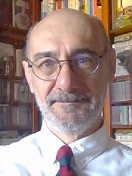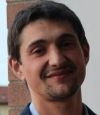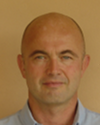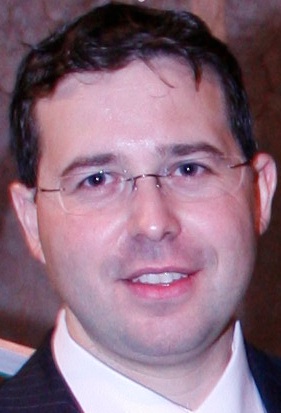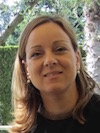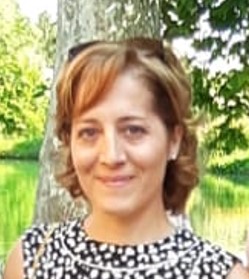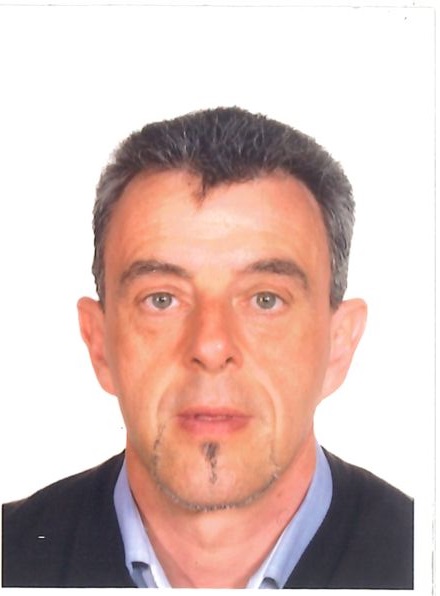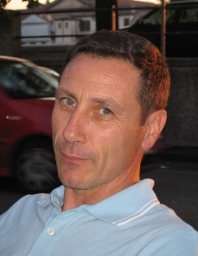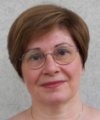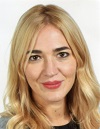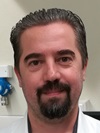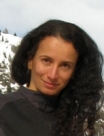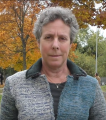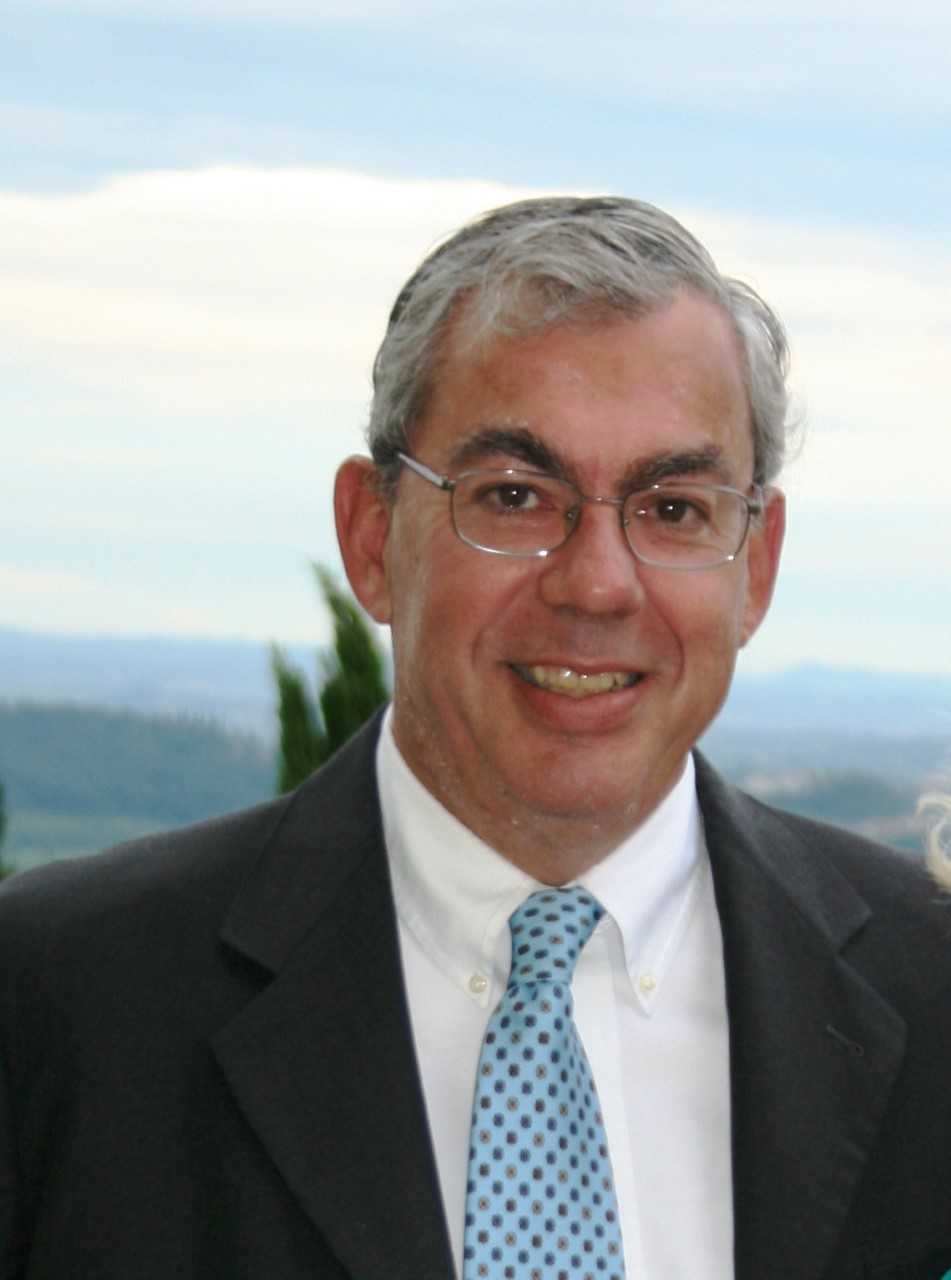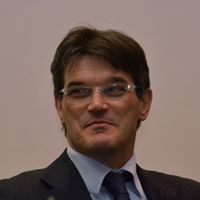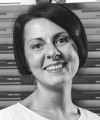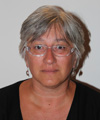Studying at the University of Verona
Here you can find information on the organisational aspects of the Programme, lecture timetables, learning activities and useful contact details for your time at the University, from enrolment to graduation.
Academic calendar
The academic calendar shows the deadlines and scheduled events that are relevant to students, teaching and technical-administrative staff of the University. Public holidays and University closures are also indicated. The academic year normally begins on 1 October each year and ends on 30 September of the following year.
Course calendar
The Academic Calendar sets out the degree programme lecture and exam timetables, as well as the relevant university closure dates..
| Period | From | To |
|---|---|---|
| annuale | Oct 1, 2021 | May 27, 2022 |
| 1° semestre | Oct 1, 2021 | Jan 21, 2022 |
| 2° semestre | Mar 1, 2022 | May 27, 2022 |
| Session | From | To |
|---|---|---|
| Sessione invernale | Jan 24, 2022 | Feb 25, 2022 |
| Sessione estiva | Jun 6, 2022 | Jul 8, 2022 |
| Sessione autunnale | Aug 29, 2022 | Sep 30, 2022 |
| Sessione straordinaria a.a. 2021/22 | Jan 23, 2023 | Feb 24, 2023 |
| Session | From | To |
|---|---|---|
| Sessione estiva | Jul 11, 2022 | Jul 29, 2022 |
| Sessione autunnale | Oct 10, 2022 | Nov 4, 2022 |
| Sessione straordinaria a.a 2021/22 | Mar 13, 2023 | Apr 14, 2023 |
| Period | From | To |
|---|---|---|
| Festa di Tutti i Santi | Nov 1, 2021 | Nov 1, 2021 |
| Festa dell'Immacolata Concezione | Dec 8, 2021 | Dec 8, 2021 |
| Festa della Liberazione | Apr 25, 2022 | Apr 25, 2022 |
| Festa di San Zeno - S. Patrono di Verona | May 21, 2022 | May 21, 2022 |
| Festa della Repubblica | Jun 2, 2022 | Jun 2, 2022 |
| Description | Period | From | To |
|---|---|---|---|
| Tirocinio scienze motorie | Attività di tirocinio | Oct 1, 2021 | Sep 30, 2022 |
Exam calendar
Exam dates and rounds are managed by the relevant Exercise Science Teaching and Student Services Unit.
To view all the exam sessions available, please use the Exam dashboard on ESSE3.
If you forgot your login details or have problems logging in, please contact the relevant IT HelpDesk, or check the login details recovery web page.
Should you have any doubts or questions, please check the Enrollment FAQs
Academic staff
 paoloriccardo.brustio@univr.it
paoloriccardo.brustio@univr.it
 marco.carradore@univr.it
marco.carradore@univr.it
 paola.cesari@univr.it
paola.cesari@univr.it
 lonardifabiola@gmail.com
lonardifabiola@gmail.com
 alberto.nuvolari@gmail.com
alberto.nuvolari@gmail.com
 gilberto.pilati@univr.it
gilberto.pilati@univr.it
 angeloluigi.sangalli@univr.it
angeloluigi.sangalli@univr.it
 fabio.sartori@univr.it
fabio.sartori@univr.it
 stefano-venturi@libero.it
stefano-venturi@libero.it
Study Plan
The Study Plan includes all modules, teaching and learning activities that each student will need to undertake during their time at the University.
Please select your Study Plan based on your enrollment year.
1° Year
| Modules | Credits | TAF | SSD |
|---|
Biochemistry of exercise
Principles of sport management
Introduction to chinesiology and sport
2° Year activated in the A.Y. 2022/2023
| Modules | Credits | TAF | SSD |
|---|
Introduction to movement analysis and motor control
Sport and exercise psychology
Training Methodology
3° Year activated in the A.Y. 2023/2024
| Modules | Credits | TAF | SSD |
|---|
Preventive and adapted physical activity
Pharmacology and cardiology applied to physical activity
Diseases of the Locomotor Apparatus
Teaching individual and team sports
| Modules | Credits | TAF | SSD |
|---|
Biochemistry of exercise
Principles of sport management
Introduction to chinesiology and sport
| Modules | Credits | TAF | SSD |
|---|
Introduction to movement analysis and motor control
Sport and exercise psychology
Training Methodology
| Modules | Credits | TAF | SSD |
|---|
Preventive and adapted physical activity
Pharmacology and cardiology applied to physical activity
Diseases of the Locomotor Apparatus
Teaching individual and team sports
| Modules | Credits | TAF | SSD |
|---|
Legend | Type of training activity (TTA)
TAF (Type of Educational Activity) All courses and activities are classified into different types of educational activities, indicated by a letter.
Biology [Matricole dispari] (2021/2022)
Teaching code
4S00303
Teacher
Coordinator
Credits
6
Language
Italian
Scientific Disciplinary Sector (SSD)
BIO/13 - EXPERIMENTAL BIOLOGY
Period
1° semestre dal Oct 1, 2021 al Jan 21, 2022.
Location
VERONA
Learning outcomes
The course aims to provide knowledge on cellular structures and functions, cell replication processes, transmission of genetic information, mechanisms of transcription and translation of the genetic information; general and up-to-date knowledge of biological issues that find application in the profession of sports activity experts; knowledge of modern biological investigation techniques that can be used in studies of motor activity and sports. Learning outcomes: understanding of the "scientific method" by describing and interpreting experiments that are part of the history of biology; description of the molecular processes that allow gene expression.
Program
At the end of the course the student must know the following topics:
1. The characteristics common to all living organisms.
2. The observations and experiments that led to the discovery of the genetic material: the experiments of Griffith and then of Avery, McLeod and McCarty on the identification of DNA; the central dogma of Biology, whereby RNA derives from DNA and proteins from RNA; the discovery of the structure of DNA from Erwin Chargaff to Rosalind Franklin to J. Watson and F. Crick and finally to Meselson and Stahl (semi-conservative replication).
3. The morphological and functional differences existing between viruses, bacteria and eukaryotes including protists.
4. The biology of the cell: the organization of the eukaryotic cell, the nuclear and cytoplasmic compartments. Cell microscopy analysis techniques.
4.1 Cell membranes: the bilayer of phospholipids, cholesterol and membrane proteins, the relationship between antigens present on the erythrocyte membrane and blood groups. The transport mechanisms
4.2 The functions of cell organelles.
4.3 The cellular aggregates and the extracellular matrix
4.4 The morphology and function of the epithelial cell
4.5 The morphology of the muscle cell and the nerve cell, the neuromuscular plate and the neurotransmitters, the synapse and its organization and the enzymes involved. Depolarization of the membrane, the chain of events that lead to the transmission of the signal from synapse to synapse through the axon, Schwann cells and oligodendrocytes, action potential and muscle contraction. The muscle cell, molecules, enzymes and proteins involved in the contraction of the muscle fiber. The types of muscle fibers and their characteristics, the growth of muscle mass related to training, the function of satellite cells, the function of myostatin and its inhibitors.
4.6 Connective cells: diversity and functions
5. Cell reproduction: the cell cycle and the mechanisms that govern cell division (mitosis) and both male and female gametogenesis (meiosis). Stem cells
6. The flow of gene information: transcription and translation. the eukaryotic chromosome and the phenomena of regulation and expression of genes. Chromatin and chromosomes. The human karyotype. Interpreting the turning on or off of a gene's activity as a response to an environmental stimulus, whether internal or external to the cell; interpret the phenomena of cell differentiation and growth by means of autocrine, paracrine and endocrine mechanisms. Genetic mutations, the difference between gene and chromosomal mutations, spontaneous mutations, mutagenic agents and their action, the "fluctuation" test, the Ames test, the correlation between mutagenesis and cancer, the correlation between smoking and cancer , UV damage and the reparative mechanisms, the Xeroderma Pigmentosum.
7. Character inheritance: the principles of Mendelian genetics, allelism and the concepts of dominance and recessivity
8. Human genetics: interpretation and construction of family trees with particular reference to traits such as blood groups and some of the known human genetic pathologies (e.g. familial hypercholesterolemia, cystic fibrosis, haemophilia etc.)
9. The principles of population genetics and Hardy and Weinberg's law.
10. Developmental biology: embryonic sheets and their fate. The mechanisms involved in the aging of all living beings: from genetic to environmental factors, Hayflick's experiments on fibroblasts, the role of free radicals, antioxidants, transgenic Drosophil experiments, telomere shortening, genetic programs which determine the average life span of a species.
The teaching methods consist of lectures during which the topics covered by the program will be addressed and discussed
Bibliography
Examination Methods
The assessment of the learning outcomes includes a written test aimed at ascertaining the knowledge of the topics in the program. The questions are formulated as multiple choice questions and open-ended questions. The questions require knowledge of the scientific terminology used in the biological field, the ability to interpret family trees, the ability to connect the knowledge of molecular biology and genetics, the ability to describe and exemplify biological structures.
Type D and Type F activities
I Regolamenti dei corsi di laurea e di laurea magistrale di scienze motorie prevedono che gli studenti possano completare il proprio piano didattico, frequentando oltre agli insegnamenti obbligatori anche delle attività formative a scelta, per approfondire alcuni aspetti tematici o settori di interesse, in coerenza con il proprio percorso formativo.
Le attività formative a scelta di ambito D sono indicate all’interno del piano didattico del corso di studio prescelto, mentre le attività formative di ambito F sono individuate da una apposita commissione di docenti. Queste ultime attività possono essere conferenze, seminari, webinar, altro e vengono acquisite con una valutazione e non con un voto in trentesimi.
PERCORSO ELETTIVO
E' possibile personalizzare il proprio piano didattico, selezionando determinate attività a scelta e attivando così un "percorso elettivo" di preferenza tra quelli proposti dal Collegio didattico di Scienze motorie.
Ai link sotto indicati si possono trovare le tabelle con le attività a scelta e i percorsi elettivi disponibili e le indicazioni per l'inserimento delle attività a scelta nel piano didattico da compilare a cura dello studente:
Tabelle delle attività a scelta
Regole per la compilazione del piano didattico con le attività a scelta
COMPETENZE TRASVERSALI
Scopri i percorsi formativi promossi dal Teaching and learning centre dell'Ateneo, destinati agli studenti iscritti ai corsi di laurea, volti alla promozione delle competenze trasversali:
https://talc.univr.it/it/competenze-trasversali
| years | Modules | TAF | Teacher | |
|---|---|---|---|---|
| 3° | Physical bases of exercise prescription | D |
Silvia Pogliaghi
(Coordinator)
|
|
| 3° | Sport physiology | D |
Silvia Pogliaghi
(Coordinator)
|
|
| 2° 3° | Advanced nutrition for sports | D |
Silvia Pogliaghi
(Coordinator)
|
|
| years | Modules | TAF | Teacher | |
|---|---|---|---|---|
| 3° | Theory and pedagogy of nordic walking | D |
Barbara Pellegrini
(Coordinator)
|
|
| 2° 3° | Public health applied to exercise | D |
Stefano Tardivo
(Coordinator)
|
|
| 2° 3° | Statistics applied to movement sciences | D |
Maria Elisabetta Zanolin
(Coordinator)
|
|
Career prospects
Module/Programme news
News for students
There you will find information, resources and services useful during your time at the University (Student’s exam record, your study plan on ESSE3, Distance Learning courses, university email account, office forms, administrative procedures, etc.). You can log into MyUnivr with your GIA login details: only in this way will you be able to receive notification of all the notices from your teachers and your secretariat via email and soon also via the Univr app.
Graduation
List of theses and work experience proposals
| theses proposals | Research area |
|---|---|
| ANTROPOMETRIA E COMPOSIZIONE CORPOREA NEL CALCIO | Various topics |
| ANTROPOMETRIA TRIDIMENSIONALE - ESEMPI APPLICATIVI | Various topics |
| Controllo posturale e locomozione in età evolutiva | Various topics |
| EFFETTO DELLA VIBRAZIONE CORPOREA TOTALE SU PEDANA | Various topics |
| Feedback Aumentativo e Apprendimento Motorio | Various topics |
| Il ruolo della fatica cognitiva nella prestazione motoria e nella percezione corporea: teorie di riferimento e strumenti di indagine | Various topics |
Gestione carriere
Student mentoring
Orario lezioni
L’orario delle lezioni comprende
Lezioni Frontali in aula
Esercitazioni e laboratori
Questi ultimi sono organizzati per gruppi dai singoli docenti responsabili dei corsi.
L'orario è pubblicato nel portale studenti
Modalità di frequenza
Vige l'obbligo di frequenza al 70% come specificato nel Regolamento di ogni singolo corso di laurea e laurea magistrale:
Ulteriori informazioni:
L'accesso alle pagine Moodle dei singoli insegnamenti è vincolato alla compilazione del piano di studi.
App Univr Lezioni, FAQ e guida all'utilizzo sono disponibili al seguente link: orario-lezioni-e-modalita-di-frequenza
Comunicati: Avvisi per studenti
Internships
Internships are aimed at enabling students to gain direct knowledge of the world of work and to acquire specific professional skills.
Internships are carried out under the responsibility of an individual lecturer, and can be carried out in professional firms, public administration bodies and companies recognised by the University of Verona.
Any CFU credits gained by doing internships will be recognised and recorded by the University in accordance with the relevant University regulations in force (Regolamento d’Ateneo per il riconoscimento dei crediti maturati negli stage universitari).
For further information on internships, please go to: https://www.univr.it/it/i-nostri-servizi/stage-e-tirocini.
Student login and resources
Recupero Obblighi Formativi - OFA
I corsi di supporto per il recupero degli Obblighi Formativi aggiuntivi - OFA di Chimica, Fisica, Matematica - sono organizzati annualmente e sono segnalati direttamente nell'orario delle lezioni del 1° anno ► vedi pagina.
Al termine di ciascun corso frequentato gli studenti dovranno sostenere e superare una prova scritta per colmare il debito entro il 15 dicembre dell'anno successivo, per potersi iscrivere al 2° anno.
►Date e orari degli appelli sono indicati nel Calendario Didattico - Calendario Esami.
In caso di mancato superamento degli obblighi formativi entro il 15/12, lo studente resterà iscritto al 1° anno anche per l'anno successivo come ripetente, dovrà sostenere la verifica di recupero in un altro appello e NON non potrà frequentare o sostenere gli esami del 2° anno.
Certificazione medica di idoneità
Riferimenti normativi principali: DM 24 aprile 2013 art. 3, GU 169 del 20-07-2013; Decreto del Ministro della Salute dell’8 agosto 2014 e s.m.i.
Per frequentare le attività dei corsi di Laurea e Laurea magistrale di Scienze motorie è obbligatorio presentare la certificazione medica di idoneità fisica per attività sportiva non agonistica. La certificazione è necessaria per accedere alle attività pratiche-esercitative e al tirocinio.
à COME OTTENERE LA CERTIFICAZIONE
La certificazione - riportante l’indicazione che è stato eseguito l’ECG a riposo - può essere rilasciata da:
- centri o servizi di medicina dello sport delle ASL (ora ATS) e delle aziende ospedaliere
- istituti della Federazione Medico Sportiva Italiana
- centri pubblici o privati autorizzati:
- dai medici di medicina generale di libera scelta, relativamente ai propri assistiti;
- dal medico specialista in medicina dello sport.
L’ECG a riposo deve essere ripetuto annualmente.
E’ ammesso anche il certificato medico di idoneità alla pratica sportiva agonistica, per chi ne fosse già in possesso.
à SCADENZA PER LA PRESENTAZIONE
La certificazione medica deve essere prodotta al momento dell'immatricolazione e, comunque, entro l’inizio delle lezioni alla Segreteria Corsi di Studio Scienze motorie. Spetta agli studenti rinnovarla annualmente alla scadenza - per ogni anno di iscrizione in corso o fuori corso. La Segreteria effettuerà periodicamente dei controlli sulla consegna dei certificati.
NOTA: Studenti immatricolati a seguito di SUBENTRO/RIPESCAGGIO/TRASFERIMENTO IN INGRESSO: se non è possibile rispettare la scadenza di presentazione del certificato sopra indicata, avvisare la Segreteria Corsi di Studio Scienze, scrivendo all’indirizzo certmed.scienzemotorie@ateneo.univr.it
à MODALITA’ DI CONSEGNA
La certificazione va inviata alla Segreteria Corsi di Studio Scienze motorie dalla propria e-mail istituzionale nome.cognome@studenti.univr.it all’indirizzo certmed.scienzemotorie@ateneo.univr.it.
Esami propedeutici
Alcuni insegnamenti del piano didattico sono definiti "propedeutici", perchè permettono di acquisire le conoscenze necessarie per affrontare lo studio di insegnamenti successivi. Di conseguenza, è obbligatorio superare gli esami degli insegnamenti propedeutici prima di sostenere gli esami di un anno seguente. Le propedeuticità presenti sono indicate di seguito nella tabella:
| Anno | Esami propedeutici | Anno | Esami che richiedono il superamento di propedeuticità | |
| 1 | Biologia | prima di | 2 | Fisiologia |
| Anatomia umana | ||||
| 1 | Biologia | prima di | 2 | Biomeccanica |
| Anatomia umana | ||||
| 1 | Biologia | prima di | 2 | Tecniche e metodologie dell'allenamento |
| Anatomia umana | ||||
| Biochimica del movimento | ||||
| 2 | Fisiologia | |||
| 1 | Biologia | prima di | 3 | Tecniche e didattica degli sport individuali e di squadra |
| Anatomia umana | ||||
| Biochimica del movimento | ||||
| 2 | Fisiologia | |||
| Tecniche e metodologie dell’allenamento | ||||
| 1 | Biologia | prima di | 3 | Attività motorie preventive e adattate |
| Anatomia umana | ||||
| Biochimica del movimento | ||||
| 2 | Fisiologia | |||
| Tecniche e metodologie dell’allenamento | ||||
| 1 | Biologia | prima di | 3 | Malattie dell'apparato locomotore |
| Anatomia umana | ||||
| 2 | Fisiologia | |||
| 1 | Biologia | prima di | 3 | Farmacologia e cardiologia applicate all'attività motoria |
| Anatomia umana | ||||
| 2 | Fisiologia | |||

 +39 045 842 5117
+39 045 842 5117


